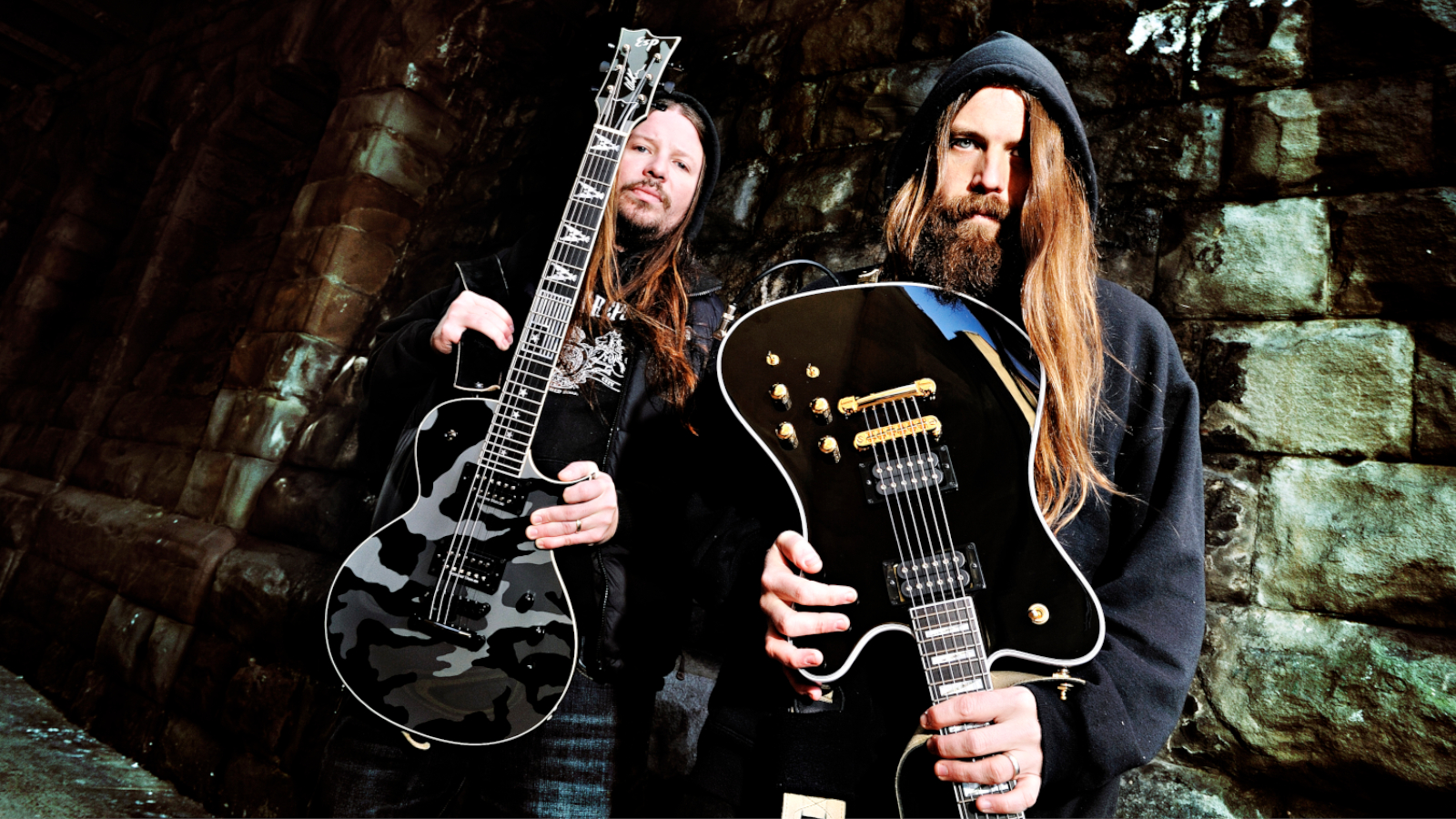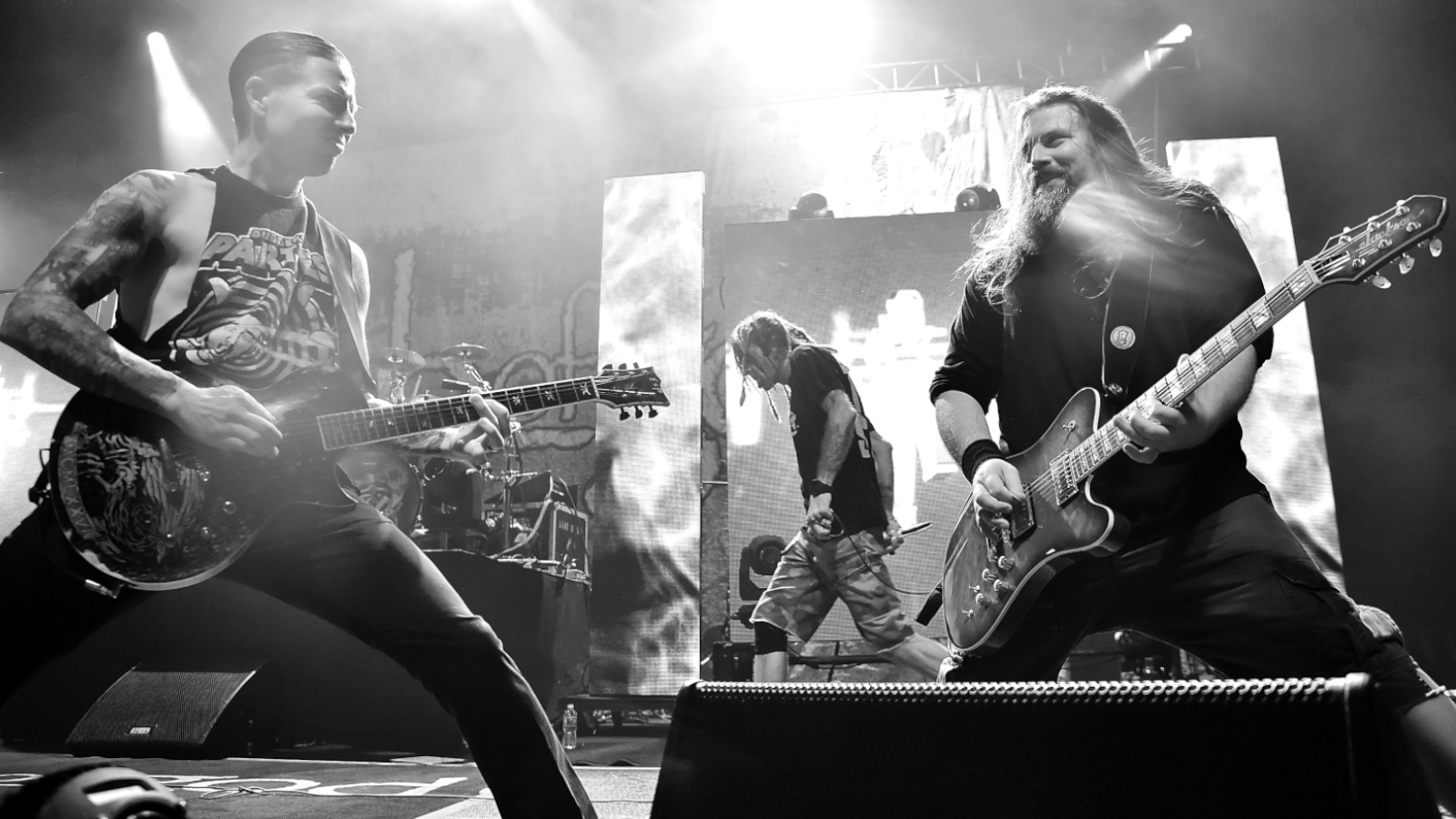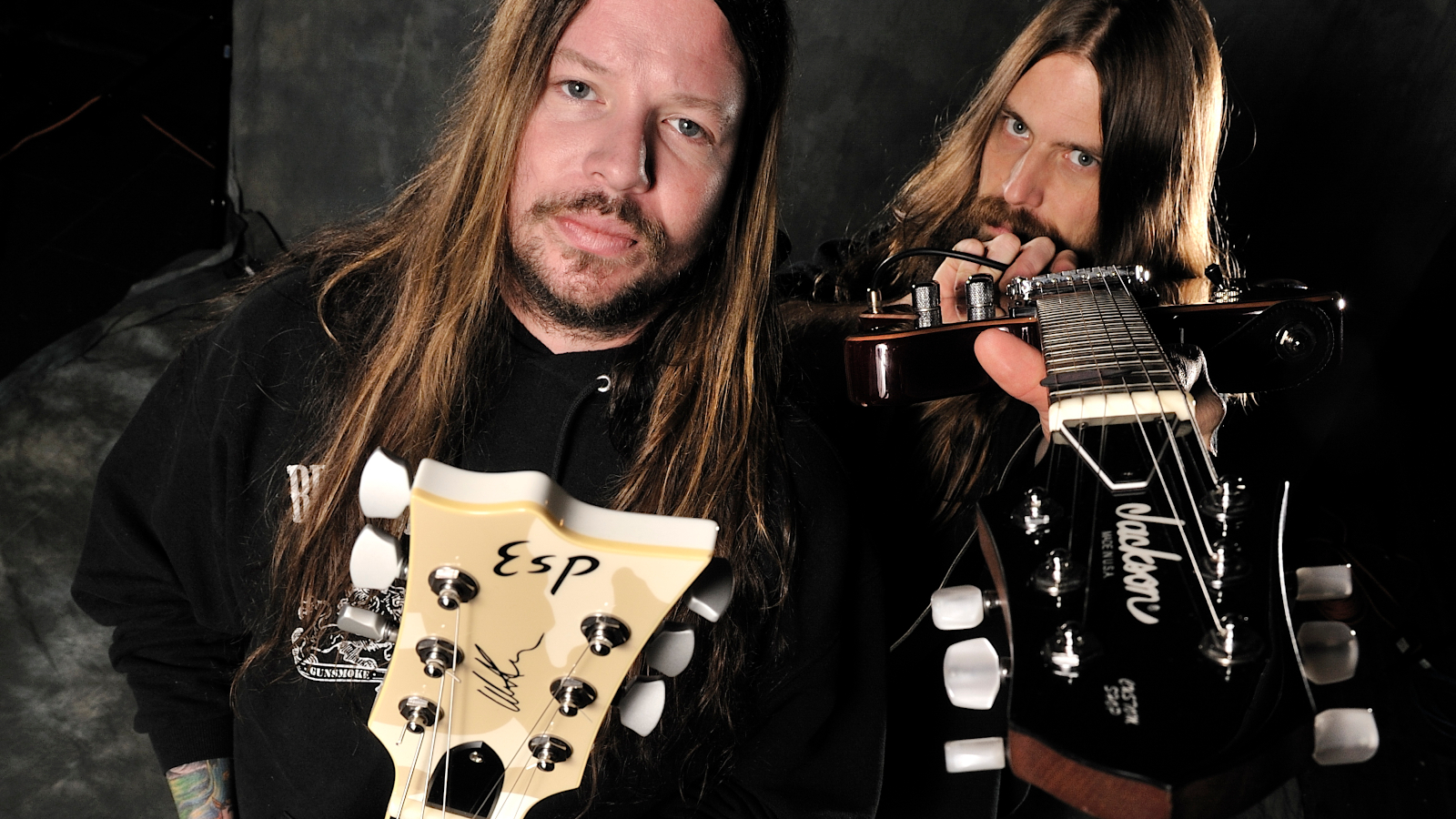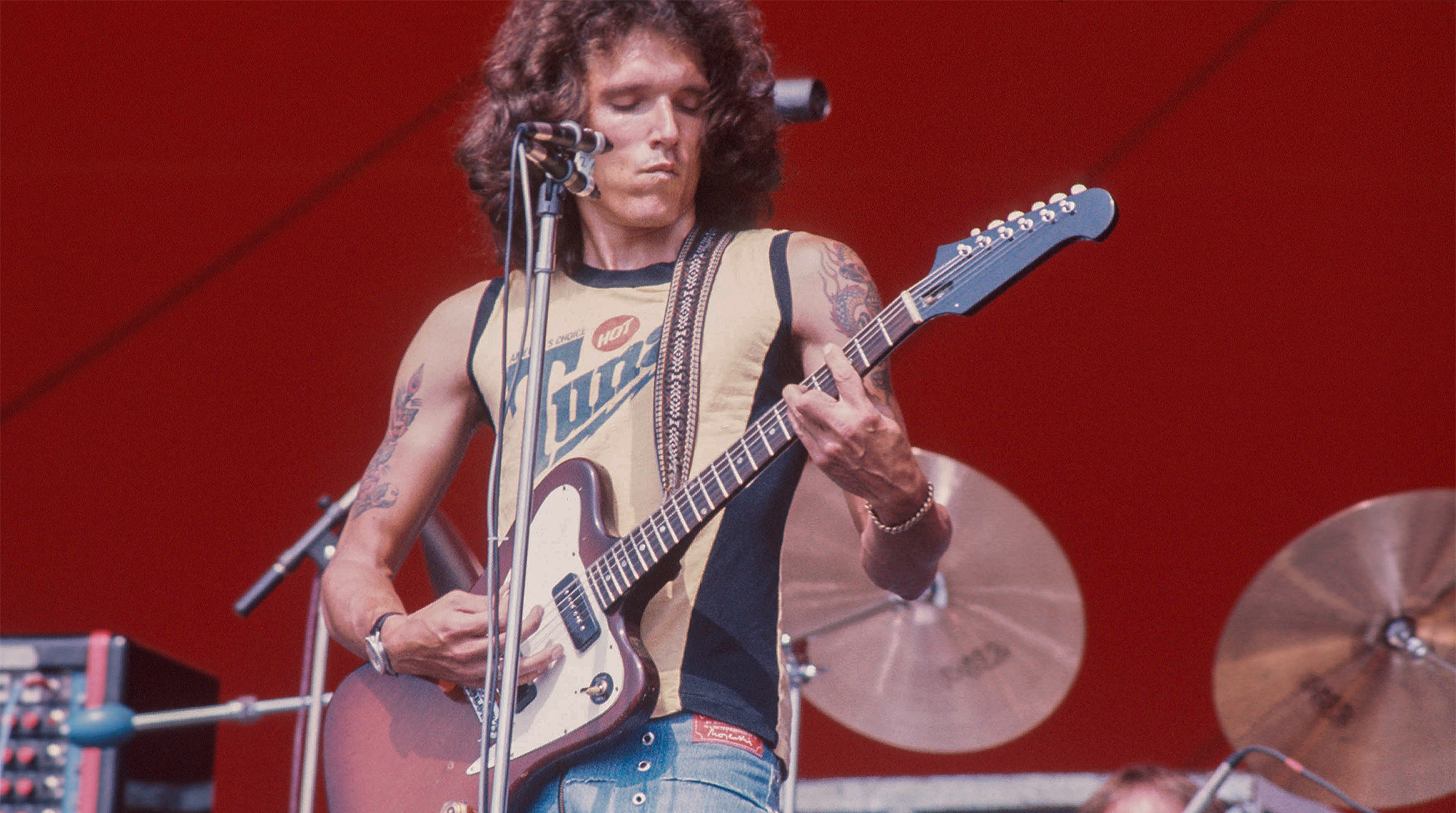
All the latest guitar news, interviews, lessons, reviews, deals and more, direct to your inbox!
You are now subscribed
Your newsletter sign-up was successful
***The following interview extract originally appeared in the November 2018 issue of Guitar Player***
On most musical matters, Lamb of God co-guitarists Mark Morton and Willie Adler couldn’t be more different from one another.
Morton is an avowed blues-rock aficionado who counts the likes of Jimmy Page, Stevie Ray Vaughan, Billy Gibbons and Jimi Hendrix as his biggest influences.
Adler, on the other hand, is a hardcore metal guy who never met a Dimebag Darrell riff he didn’t embrace.
Morton analyzes and dissects the modes and scales of his melodic, blues-tinged leads, while Adler “plays from the gut,” impulsively throwing in atonal noise and dissonant chords of his own invention.
Our bond is the success of this band, and we work together toward that goal
Willie Adler
The blend of their unique styles and approaches has helped to turn the Richmond, Virginia-based outfit into one of the most powerful (and biggest-selling) forces in the New Wave of American Heavy Metal movement.
“Mark and I have always had something of a deep-seated rivalry, or I guess you could call it a friendly competition,” Adler says. “But our bond is the success of this band, and we work together toward that goal.”
All the latest guitar news, interviews, lessons, reviews, deals and more, direct to your inbox!
When it comes to metal tone, the two axmen have very different approaches to their craft. Yet they agree that tone is as personal and individual as a fingerprint.

“I think it has everything to do with the guitarist,” Morton says. “Tone is all in a player’s hands – the way they pick, how they fret the strings, their articulation. I know for a fact that Willie and I can play the same guitar plugged into the same amp and we’re going to sound totally different.
Tone is all in a player’s hands
Mark Morton
“Our tones are unique because it’s all about us. It’s not our gear.”
Adler agrees. “You can write out my parts and have a guy sit down and play them, but he’s never going to sound like me,” he says. “Only I can sound like me, and only Mark can sound like Mark.
“That’s the way it should be. What’s good for one guy might be totally unacceptable for another player.
"And it might have to do with what kind of music they’re playing, too. Some tones might sound cool for surf music, but they’d sound horrible in a metal band.”

Do you feel that metal guitar players are so focused on achieving an over-powering sound on record that they sometimes lose the actual tone of the guitar itself?
Mark Morton: Totally. That’s why I’m so adamant about using passive pickups, and I’ll give a plug here to my signature pickup, the DiMarzio Dominion.
Bad tone on a record is almost a cumulative thing
Willie Adler
I’ve played some great active pickups, but they just don’t do the same job as passive ones. Actually, that’s the problem: They do exactly the same job all the time, meaning you can put them on a skateboard and it’ll sound like a Les Paul with the same pickup.
To me, you’re not playing a guitar anymore; you’re playing a pickup.
Willie Adler: Bad tone on a record is almost a cumulative thing, which we used to be guilty of. It’s this notion of “Let’s just add as many tracks as we can to make it huge.”
In our minds, more guitars makes things heavier, but in reality you lose elements of the actual guitar.
It becomes this big wall of saturation. And when you have a bunch of guitars with scooped-out mids, it’s just bad. It doesn’t even sound like guitars anymore.
With that in mind, do you think that a unique metal tone is sometimes harder to achieve than, say, a blues or a country tone?
Morton: Maybe. I’ve always considered myself a very happily misplaced blues player. I’m a blues guitarist in a metal band, but I think that’s what helps contribute to our sound.
My approach to tone doesn’t change whether I’m playing with a blues band or Lamb of God
Mark Morton
My approach to tone doesn’t change whether I’m playing with a blues band or Lamb of God. I usually use the same amp, a Mesa/Boogie Mark IV, though sometimes I use the Mark V.
But my playing might change a bit. I’ll use a different sort of attack with my right hand; I might squash or crunch the strings, or I might play a little lighter. Again, it’s about how I play and not as much about the amp.
Adler: That’s hard for me to say, because I’ve only had a metal tone. It can be pretty hard to get a good metal tone, but I don’t know if it’s more difficult than dialing up a decent sound for country or blues or what not.
To me, authenticity is the key. If you sound pure, then you’ve got something going. If you can go out onstage and be stoked about your sound, the chances are good that you’re doing something right.
Did the two of you ever sit down and talk about your choices of brands and instruments and how they work together?
Morton: We’ve never had that discussion. We just found the instruments we were comfortable with, but we didn’t A/B them.
We just do our own thing
Willie Adler
I know I keep saying this, but the way we sound together really has more to do with our playing techniques, not the guitars or gear we use.
Adler: It was never verbally stated like, “Yo, dude, you have to play that guitar – I’m playing this one.” We’ve always kind of gravitated toward opposite ends of things. I think it was kind of understood that I’m not going to play Jacksons, and he’s definitely not going to play ESPs.
Not that either one is bad for the other dude, or whatever. We just do our own thing.
Morton: We try not to sound like each other. If I hear Willie getting a certain sound, I might dial up something that goes somewhere else.
We want our sounds to sit on top of each other. They shouldn’t be a big mush of the same sound.

Joe is a freelance journalist who has, over the past few decades, interviewed hundreds of guitarists for Guitar World, Guitar Player, MusicRadar and Classic Rock. He is also a former editor of Guitar World, contributing writer for Guitar Aficionado and VP of A&R for Island Records. He’s an enthusiastic guitarist, but he’s nowhere near the likes of the people he interviews. Surprisingly, his skills are more suited to the drums. If you need a drummer for your Beatles tribute band, look him up.


